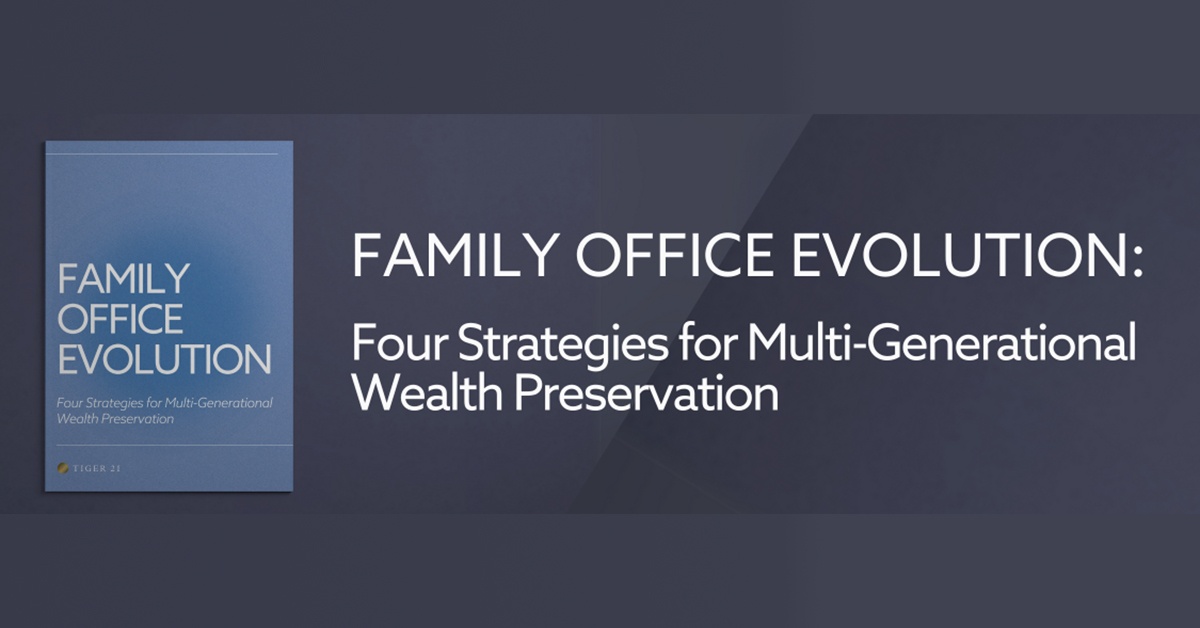The Differences Between a Single Family Office and Multi-Family Office

Navigating the world of family offices brings forth one initial decision: the choice between a single family office (SFO) and a multi-family office (MFO). What are the differences between a single family office vs. multi-family office? Both models offer distinct advantages tailored to the needs of affluent families, yet their differences hold significant implications. This blog delves into the core distinctions between SFOs and MFOs, aiding you in making an informed choice that aligns seamlessly with an ultra-high-net-worth family’s financial goals and dynamics.
What is a Family Office?
A family office is a bespoke wealth management entity established by UHNW families to oversee and comprehensively manage their financial affairs. Family office services include investment management, tax optimization, estate planning, and philanthropy, family offices provide tailored strategies to preserve, grow, and strategically manage wealth across generations, while addressing the specific needs and aspirations of the family.
What is a Single Family Office
A single family office (SFO) is a dedicated entity established by a wealthy family to manage and optimize their financial affairs. SFOs exclusively serve the interests of that family, with customized services to meet the family’s unique needs and goals. This model is particularly suitable for affluent families seeking exclusive, highly tailored financial solutions and direct management of their assets.
Single Family Office Structure
The structure of an SFO often includes a core team of professionals such as investment managers, financial planners, tax experts, legal advisors, and administrative staff. This team works closely with the family to develop and implement customized strategies for investment management, estate planning, tax optimization, philanthropy, and more. SFOs allow the family to oversee their wealth with a focus on privacy, exclusivity, and alignment with their values. The structure can vary widely based on the family’s preferences and the complexity of their financial situation.
Advantages and Disadvantages of Single Family Office
SFOs come with distinct advantages and disadvantages. On the positive side, SFOs offer financial strategies based on the specific needs, values, and goals of a single UHNW family. Direct control and privacy are notable benefits, allowing for hands-on management and decision-making. However, SFOs can be costly to establish and maintain, involving significant upfront expenses and ongoing operational costs. Additionally, they might lack the diverse expertise and investment opportunities that multi-family offices offer due to their focused scope. Family dynamics could also impact SFOs, potentially leading to disagreements or limited succession planning.

What is a Multi-Family Office
A multi-family office (MFO) is a wealth management entity that serves the financial needs of multiple affluent families. MFOs pool resources to provide shared services, creating cost efficiencies and broader expertise. MFOs cater to families with significant wealth who seek professional guidance while benefiting from shared resources. By leveraging economies of scale, MFOs provide access to a diverse team of experts and investment opportunities, making them an attractive option for affluent families looking for comprehensive financial services without the specific need for a dedicated single family office structure.
Multi-Family Office Structure
A typical MFO operates under a shared platform utilizing a team of professionals including investment advisors, financial planners, tax specialists, and other experts that offer a range of services. The MFO structure promotes collaboration and knowledge sharing while offering a level of customization to suit the unique needs of each participating family.
Advantages and Disadvantages of Multi-Family Office
MFOs also offer distinct advantages and disadvantages. By sharing resources, MFOs are able to reduce costs and grant access to a broader range of expertise and investment opportunities. MFOs foster collaboration among families, facilitating knowledge sharing and diverse perspectives. However, MFOs might lack the level of customization that single family offices offer, as services are shared among families with varying needs. Additionally, the shared approach might compromise privacy and exclusivity. Complex family dynamics could arise due to differing goals and preferences. Despite these challenges, MFOs offer a cost-effective and efficient solution for comprehensive wealth management, especially for families seeking diverse services and collaborative expertise in a structured environment.
Cost of Single Family Office vs Multi-Family Office
Cost structures between single family offices and multi-family offices differ significantly due to their distinct operational models. Since SFOs are tailored to individual families, they tend to have higher upfront setup costs and ongoing operational expenses, given the need for dedicated staff, technology, and infrastructure.
On the other hand, MFOs pool resources among multiple families, resulting in shared costs and potentially lower individual expenses. This cost-sharing approach allows MFOs to provide access to a broader range of specialized professionals and investment opportunities, typically at a more affordable rate compared to setting up and running an SFO.
However, MFOs might involve fees associated with the shared services, and while they offer cost-efficiency, the services might be less tailored compared to SFOs. Families seeking a balance between customization and cost-effectiveness should carefully consider these differences in cost structures while evaluating whether an SFO or MFO aligns better with their financial objectives and preferences.
Choosing between a Single Family and Multi-Family Office
The choice between single family offices and multi-family offices hinges on a balance between exclusivity, customization, and cost-efficiency. SFOs offer unparalleled personalized services, allowing for tailored wealth management aligned with individual family goals, but come with higher costs and potential limitations in expertise. MFOs provide cost-sharing benefits, broader expertise, and access to diversified investment opportunities, making them attractive for families seeking comprehensive services at a more affordable rate.
When comparing family offices to standard wealth management, family offices offer a holistic approach that encompasses financial, legal, lifestyle, and philanthropic needs, personalized to the family’s values. This distinction empowers UHNW families to manage wealth across generations while maintaining a comprehensive focus on their unique financial circumstances and aspirations.
Are you looking for knowledgeable peers and a confidential setting where you can discuss creating or running a family office? TIGER 21, an exclusive global community for ultra-high-net-worth individuals, offers a Family Office Group Membership that focuses specifically on the unique considerations for those in the family office space. Learn more about TIGER 21 Membership here.
Download the Family Office Checklist
About TIGER 21
TIGER 21 is an exclusive global community of ultra-high-net-worth entrepreneurs, investors, and executives.
Explore the TIGER 21 Member ExperienceMember Insight Reports










